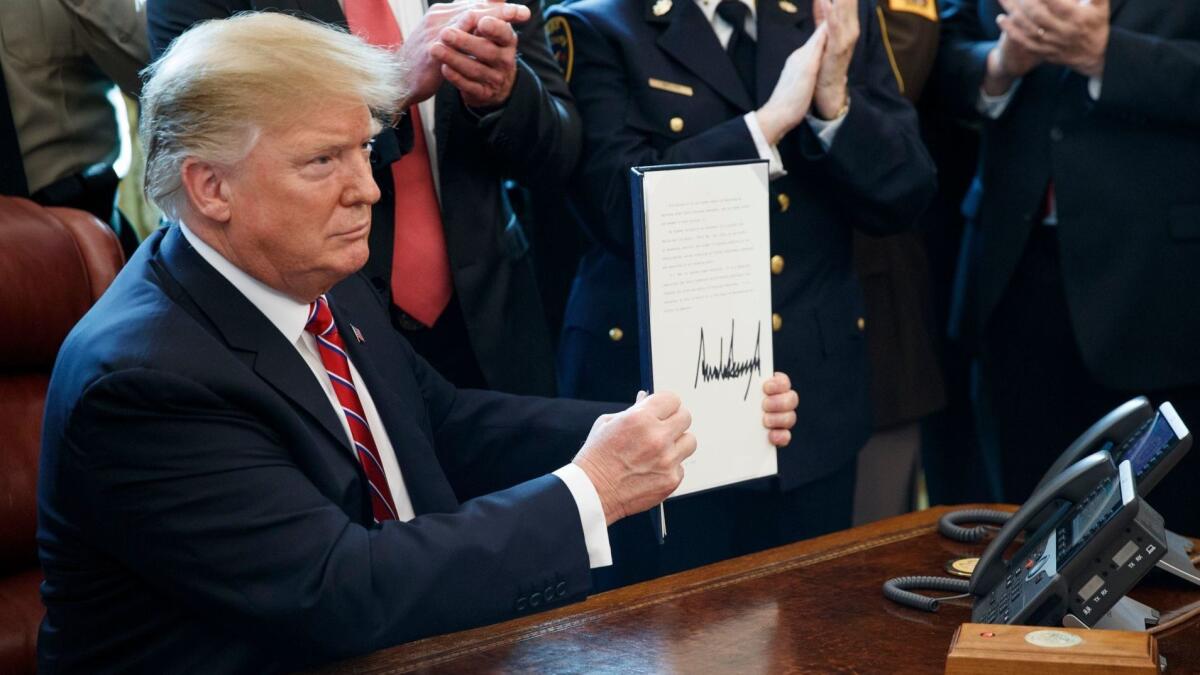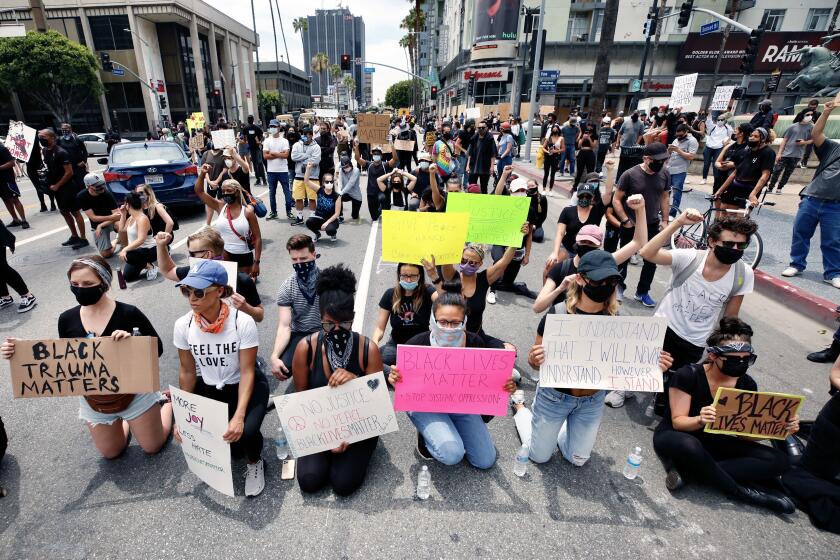Trump loves to manipulate policy in times of crisis. Here’s how Congress can stop him

- Share via
President Trump on Thursday signed yet another executive order targeting federal regulations that he believes are holding back the U.S. economy. This time around he decreed that federal agencies can ignore decades of environmental law — including the Endangered Species Act and the National Environmental Policy Act — to fast-track approvals for new mines and oil wells, roadway construction, pipelines and other job-creating projects.
His authority to do this? In March the president cited the coronavirus pandemic in invoking the National Emergencies Act of 1976, which gave him wide latitude to marshal government assets to confront the crisis. He decreed in Thursday’s order that the economic fallout from shuttered businesses under stay-at-home orders worsens that emergency and “that, without intervention, the United States faces the likelihood of a potentially protracted economic recovery with persistent high unemployment.”
Protesters took their message to affluent, white neighborhoods and L.A.’s halls of power. It was an important decision.
But the government has already intervened with infusions of cash, enhanced unemployment benefits and loans to keep businesses afloat (with more aid and job-creating programs under discussion in Congress). And Congress and the president have been working for years on an as-yet-elusive deal to fund a big new investment in infrastructure. So what does this attempted end run around environmental rules really mean? That Trump is once again using a crisis to push at best tangentially related policies that he otherwise has not been able to achieve through the political process.
The president has stretched his authority to the breaking point in other ways too; for just one example, he invoked national security concerns to impose tariffs that really were intended to shore up domestic industries in a globalized economy. But his exploitation of the National Emergencies Act is particularly worrisome. His national emergency declaration over conditions at the U.S.-Mexico border was a ruse to give him cover to reallocate crucial Defense Department funds to pay for extending a border wall that Congress has refused to fund. And now he’s using the pandemic as cover to expand his assault on federal environmental regulations — something he admitted in the order’s declaration: “From the beginning of my Administration, I have focused on reforming and streamlining an outdated regulatory system that has held back our economy with needless paperwork and costly delays.”
Congress enacted the National Emergencies Act under the presumption that a president invoking the law would do so in good faith, with the national interest at the forefront. It didn’t anticipate a malignant force in the White House, and now we are seeing the consequences — a president whose modus operandi is to forge ahead in whatever direction he wants and defy anyone to stop him. Our president is drunk on a perception of boundless power, and it’s frightening that Congress, where Senate Majority Leader Mitch McConnell (R-Ky.) has been an embarrassment of historic magnitude, can’t muster the courage to stand up to him.
The retired Marine general and former Defense secretary says what congressional Republicans are afraid to admit: Trump is an unstable menace.
Fortunately, state governments and the environmental movement have no shortage of lawyers who will sue the administration back into compliance, as they did after Trump’s earlier efforts to brazenly flout environmental laws and regulations. But the bigger picture here is the more troubling one. Trump continues to abuse the authority granted under the National Emergencies Act to subvert the legislative process, undermine or ignore the intent of a wide range of existing laws and regulations, and in essence impose his will simply by declaring a bogus emergency or hijacking a real one for his own purposes.
Congress needs to take this lesson to heart and reform the National Emergencies Act to preserve a president’s necessary flexibility to deal with events that move faster than Congress can hope to, but with reasonable restrictions to restrain an unreasonable president. The Constitution was written by people who feared replacing British monarchical rule with a dictatorship of another sort and crafted a balance of power among the executive, legislative and judicial branches. But that balance is only as stable as the participants make it, and the nation is seeing the results of their failure.
More to Read
A cure for the common opinion
Get thought-provoking perspectives with our weekly newsletter.
You may occasionally receive promotional content from the Los Angeles Times.











